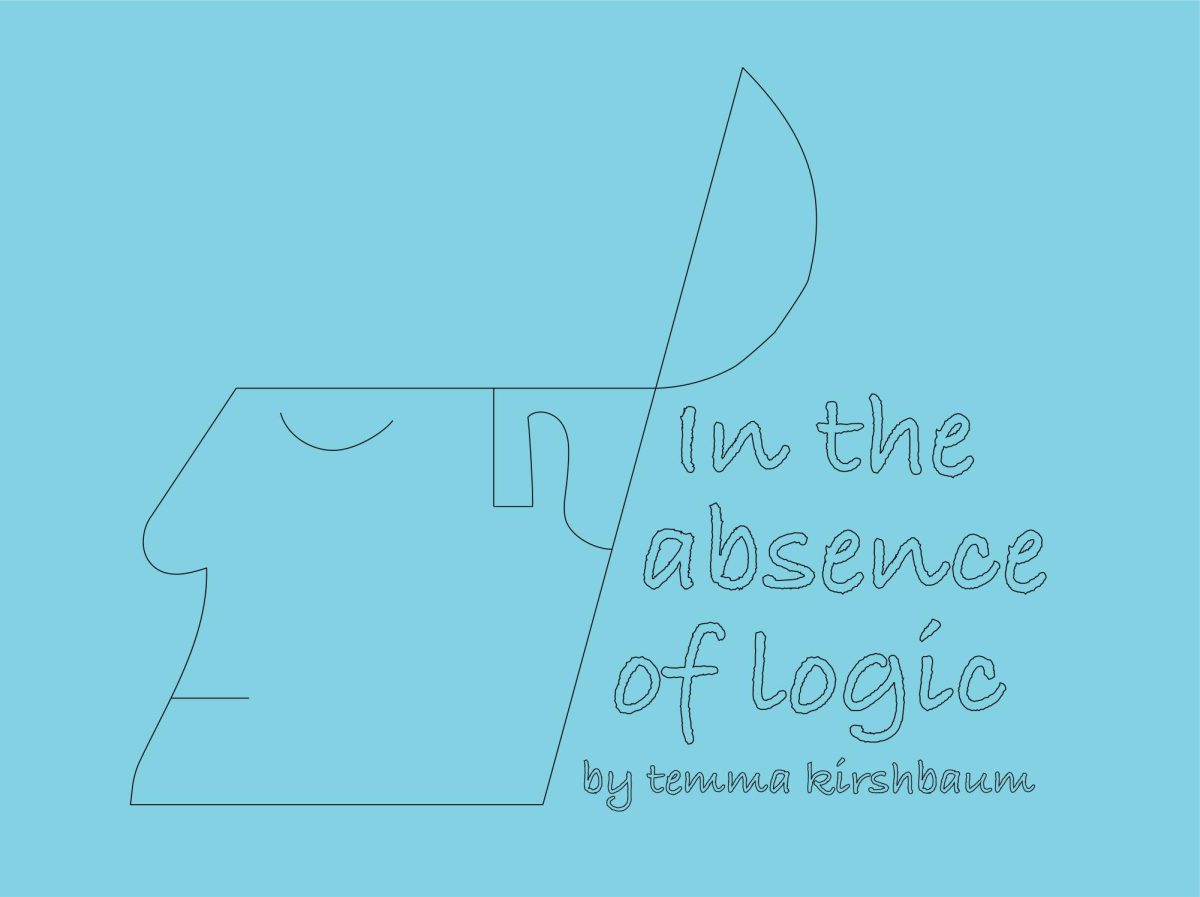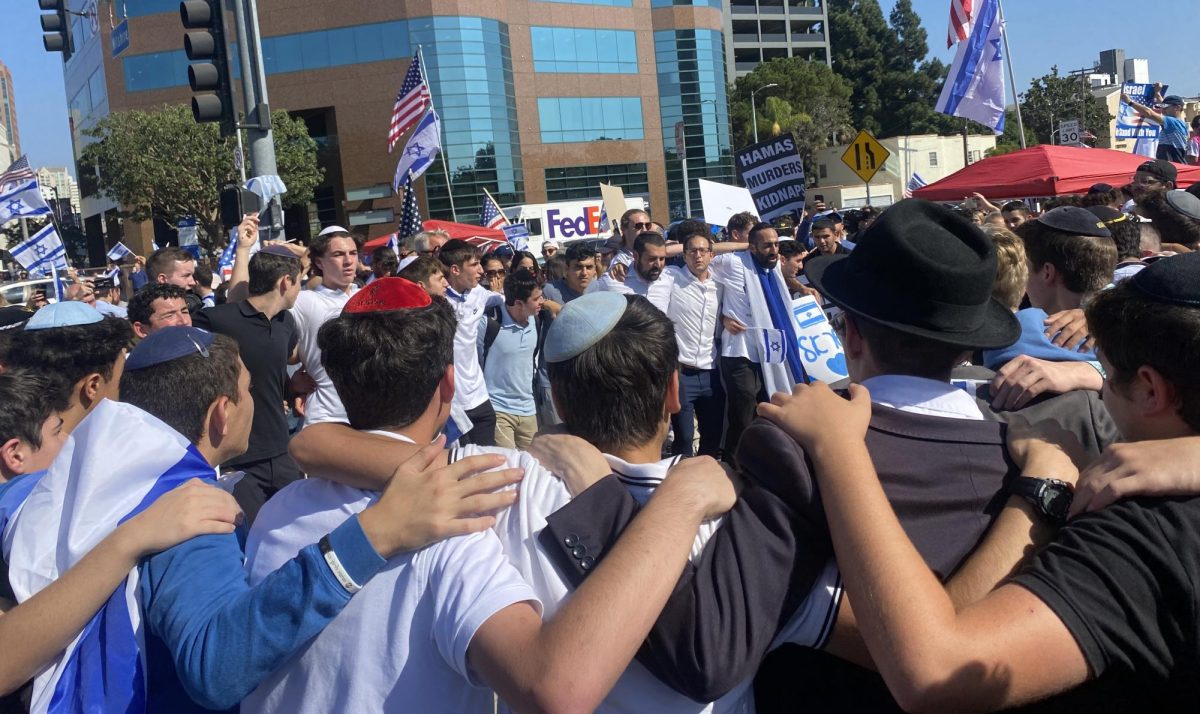 According to Judaic Studies teacher Rabbi Shmuly Yanklowitz, all the kosher restaurants on Pico Boulevard have been invited to apply for the new Tav HaYosher,* or ethical seal, proving that they treat their workers according to basic ethics of Jewish, along with state, law.
According to Judaic Studies teacher Rabbi Shmuly Yanklowitz, all the kosher restaurants on Pico Boulevard have been invited to apply for the new Tav HaYosher,* or ethical seal, proving that they treat their workers according to basic ethics of Jewish, along with state, law.
But so far, only three have earned it, along with seven other Los Angeles kosher restaurants. Among them are Pico Café, Bibi’s Warmstone Bakery, Milky’s Frozen Yogurt on Robertson, and the Coffee Bean & Tea Leaf at UCLA Hillel.
“I went into this believing most owners would be in favor of it, but it’s all business,” said Rabbi Yanklowitz, who is a leader of Uri l’Tzedek, the Orthodox social justice organization which sponsors the Tav. “It was really sad to me…there should have been Jewish values behind them.”
Rabbi Yanklowitz himself came up with the idea for the Tav Hayosher when it became known to him that despite a restaurant being kosher, it need not abide by the basic ethics of Jewish and state laws.
About 100 restaurants have been certified nationwide, most in New York. Others are in Connecticut, Illinois, Manhattan, Maryland, Missouri, Ohio, Texas, and Washington. The seal is beginning to be used in Canada, too.
“The central purpose of Torah and the Jewish people is to send social justice in the world, to defend the vulnerable – that was Abraham’s mission” said Rabbi Yanklowitz. “Unfortunately, Modern Orthodoxy has moved towards over-emphasizing ritual and downplaying basic, ethical standards.”
Volunteers – many, graduating seniors from high schools throughout the country – are trained by the organization, and are sent to kosher establishments in major cities to investigate whether or not the establishment meets the three standards to receive the Tav, or seal. If they do, they receive a certificate to hang in the restaurant, proving they treat their employees in accordance with Jewish morals.
“I was really surprised when I heard all the horrible things that happen in Jewish establishments,” said senior Deanna Grunfeld, who took Rabbi Yanklowitz’s Jewish Philosophy class this year. In 2008, in Postville, Iowa, for example, federal agents discovered that the largest kosher meat-packing plant in the country, Agriprocessors Inc., was engaging in widespread mistreatment of workers, as well as 389 illegal immigrants, and more than 20 under-age workers, some as young as 13. “I thought those things mostly happened in places where the employers weren’t concerned about kashrut.”
To acquire the Tav, employees must be paid at least the minimum wage as defined by state law, limit their work week to 40 hours and six or less days, and pay time-and-a-half for overtime. Also the workplace must meet a variety of state and local safety standards, ranging from dry floors to protective clothing for jobs that are dangerous.
Uri l’tzedek encounters four tiers of restaurants when recruiting restaurants for obtaining the Tav, Rabbi Yanklowitz said. Some restaurants already meet the standards, and they are thrilled because the certification is good advertising.
The second is restaurants who take some convincing
that it will be in their interest, because they may make more money from publicity than they’ll lose by following the law.
Then, there are restaurants that don’t meet the standards and aren’t willing to change, but are not hostile. Finally, there are restaurants that are completely hostile.
The least common of the four tiers to come across is the first, he said.
But 13 certified restaurants and caterers are in California, including 10 in Los Angeles.
“I was familiar with other forms of ‘ethical standards,’” said Dan Messinger, the owner of Bibi’s, in an interview. “But it when I heard about the Tav, I liked the idea of holding myself accountable for being an ethical employer.
“The way that we act towards other people should be the same level as our kashrut, if not more.”
Bibi’s was already meeting the standards of fair pay and a safe work environment before acquiring the Tav. But to acquire the certification, minor changes had to be made regarding overtime pay, he said.
“I began receiving little recognition after I had gotten the Tav,” Mr. Messinger said. “A few people came in and said they appreciate what I’m doing. I can’t say it increased business, though – it just made me feel better about the way I’m conducting business.”
Customers in restaurants such as Jeff’s Gourmet, Pico Kosher Deli, as well as Bibi’s were completely unfamiliar with the Tav when asked about it.
Just as customers had not heard of the ethical seal, so too certain establishments hadn’t heard of it, either.
“I hadn’t heard of anything like it before, but California has crazy rules, so I never tried to go around them to begin with,” Erica Tucker, the owner of Sweet E’s Bakeshop, said in an interview. “It was an extremely easy process for me. I didn’t have to change anything, and they just interviewed my employees.”
Compared to other jobs, workers at both Bibi’s and Sweet E’s feel their current jobs have much better conditions.
Outside the presence of Mr. Messinger, an employee of Bibi’s said the environment there was better than at any other place where he had worked.
“Everything is really fair here, and I feel lucky to work in such a positive place,” said the employee, who wished to remain anonymous.
The Boiling Point interviewed managers at Pat’s, Chick’n’Chow, Jeff’s Gourmet and Shilo’s about the Tav Hayosher. Managers said they were unfamiliar with the Tav program, and owners of the restaurants did not return phone calls.
Mr. Darren Melamed, who owns Pizza World, told the Boiling Point he waa indeed approached by the organization, but decided he did not want the Tav.
“They mailed something to me at one point. I have always been completely compliant with all their standards, but we didn’t like their whole approach,” Mr. Melamed told the Boiling Point in a phone interview. “The reason we feel they’re doing it is not because of ethics, but we felt they felt a loss of trust in kosher restaurants, and this was their response to the scandal that occurred in Postville, Iowa.”
“I feel that the organization is not legitimate,” he continued. “They do not really check the restaurants correctly, and it’s a misrepresentation…it isn’t how it looks.”
Asked to respond, Rabbi Yanklowitz said he thought Mr. Melamed might be misinformed.
“It seems to me that if someone doesn’t sign on its either they’re not meeting the legal standards, or they’ve received misperception on what the organization is trying to do,” said Rabbi Yanklowitz in a phone interview.
“It’s only to their benefit. The idea they don’t want anyone looking at their business is very strange, because they already have a mashkiach looking through their business anyways.”
Except for seniors, Shalhevet students seemed equally in the dark.
“I’ve never even heard of it,” said junior Marcella Bijou. “I wouldn’t pay attention to it anyways, though. I just wouldn’t notice the sign, and I wouldn’t go hunting for a specific restaurant just because they have it.”
Senior David Fletcher knew what the Tav was because of being in Rabbi Yanklowitz’s class.
“I wouldn’t not go to a restaurant if it didn’t have it, but I would probably go to a restaurant more if it did have the Tav,” said David, who frequently dines at restaurants on Pico.
This story won a National Award in News Writing in Quill & Scroll’s 2013 Internatioanl Writing and Photo Competition.














